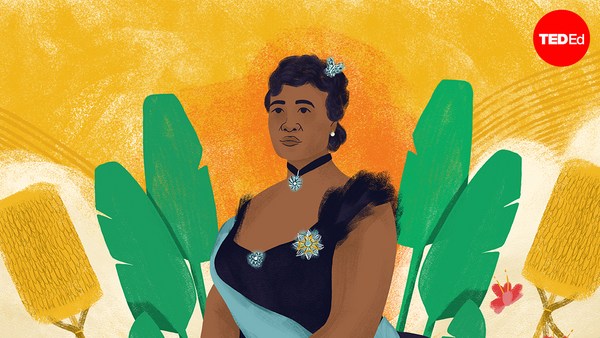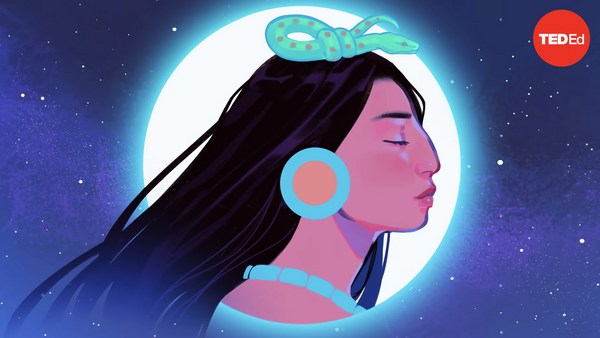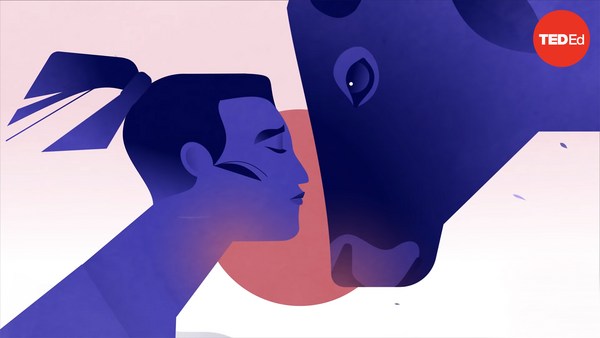Long ago, La’amaomao, the Hawaiian wind goddess, wielded a gourd that housed the winds of the Islands. It came to hold her bones, along with the life force they carried, and was eventually passed to her grandson, Paka’a. He learned the hundreds of distinct winds that wafted and whipped around his homeland. Chanting their names, he could stir the skies and raise the waves. Like his father before him, he became the most trusted attendant to King Keawenuia’umi of Hawaii Island. But his privileged status also made him a target.
Two of the king's seafaring navigators were especially envious. They knew Paka’a’s skills and responsibility to the king were divinely inherited, but they coveted his position. So they whispered rumors and eventually turned the king against his most loyal companion. Paka’a watched bitterly as he was stripped of his land and privileges. He fled, escaping the navigators who plotted to drown him as he sailed away, and took refuge on Molokaʻi, where he married a young chiefess. They brought a son into the world, but Paka’a never stopped imagining his return. He taught his son, Kuapaka’a, the way of the winds until Kuapaka’a was poised to avenge his father and restore his rightful place beside the king.
Back on Hawaii Island, as the two navigators revealed their selfishness, the king realized how easily he’d been deceived and longed for Paka’a. Some of his more trustworthy attendants divined that Paka’a was still alive and told the king to construct canoes for a journey. However, Paka’a could not return so easily. First, the king’s loyalty and dedication had to be tested.
As the king rallied his attendants, Paka’a’s ancestral spirits arrived in the form of two birds and rotted the trees he was using for canoe-building. Though exhausted, the king had his best archers shoot the birds, and he started again. Later, as Paka’a dreamed, the king’s spirit announced his search. However, Paka’a’s own spirit misled the king, saying he was on Ka’ula— not Molokaʻi.
The king’s fleet soon set sail. As they passed Molokaʻi, Paka’a’s son, Kuapaka’a, greeted them, warning that a storm was brewing. He chanted the names of the winds, but kept his identity a secret, as per Paka’a’s plan. The king’s navigators dismissed the young boy’s claims. But as they sailed off, Kuapaka’a unleashed a vicious storm and all were forced to shelter on Molokaʻi. For four months, Kuapaka’a maintained the storm. With Paka’a’s secret supervision, he earned the king’s trust, and, after clearing the sky, Kuapaka’a agreed to join the king’s search.
At sea, the two navigators continuously discredited Kuapaka’a. Finally, he readied himself for revenge and called the winds. As waves crashed, Kuapaka’a anchored the canoe and passed provisions to everyone— except the two navigators. They grew cold and weak, eventually falling overboard. But Kuapaka’a’s work wasn’t done. While everyone slept, he brightened the sky and sailed towards Hawaii Island instead of Ka’ula. Though the king regretted not finding Paka’a, everyone was glad to be home and forgot about Kuapaka’a— until the day he proposed a canoe race.
He wagered his catch of flying fish against that of eight fishermen who had been appointed by the two treacherous navigators. They agreed, figuring it'd be an easy win. But Kuapaka’a called to La’amaomao, and a great wave whisked him ahead of his opponents. Enraged and convinced this was a fluke, the fishermen asked for a rematch. But this time, they demanded Kuapaka’a wager his bones against theirs. At first, the men paddled fiercely, with Kuapaka’a gliding effortlessly in their wake. As they tired, Kuapaka’a hurtled himself to victory.
Hearing that eight of his fishermen were to die, the king asked Kuapaka’a to have mercy on them. But the time had come for Kuapaka’a to reveal his identity and have the King prove his commitment to Paka’a. Overcome, the king agreed to their deaths and asked to welcome Paka’a home, promising his lands and position would be restored.
At last, the king and Paka’a were back at each other’s sides. Wielding the sacred wind gourd, Paka’a and Kuapaka’a ensured the names of the winds would never be lost, and those who understood them never undermined or forgotten.


